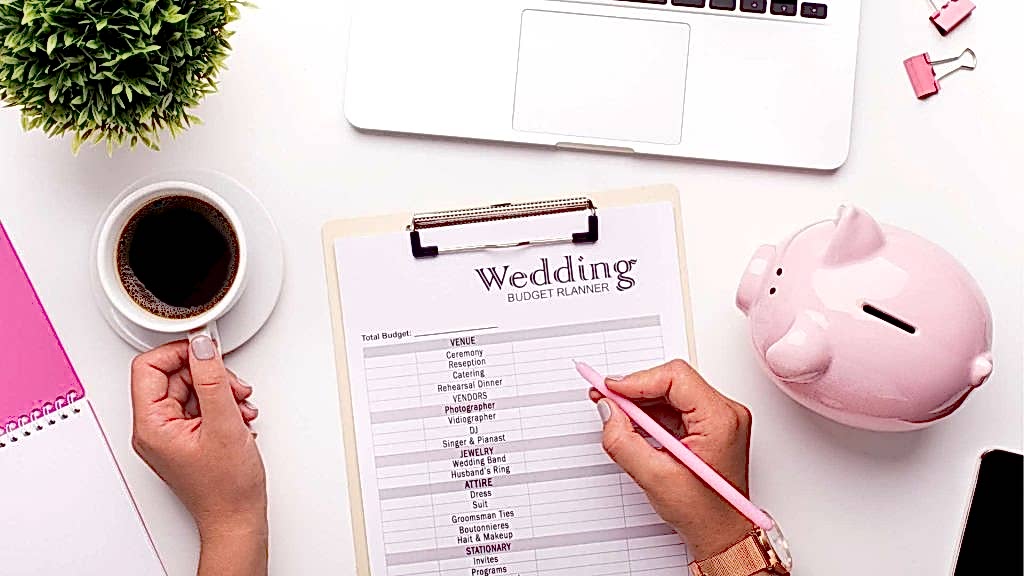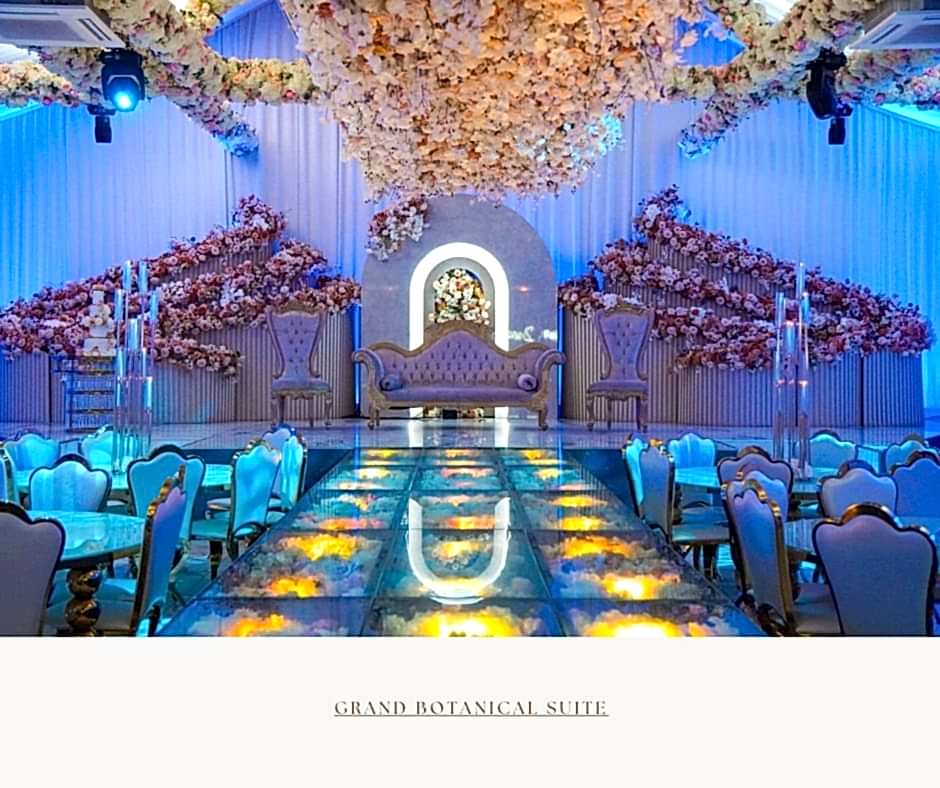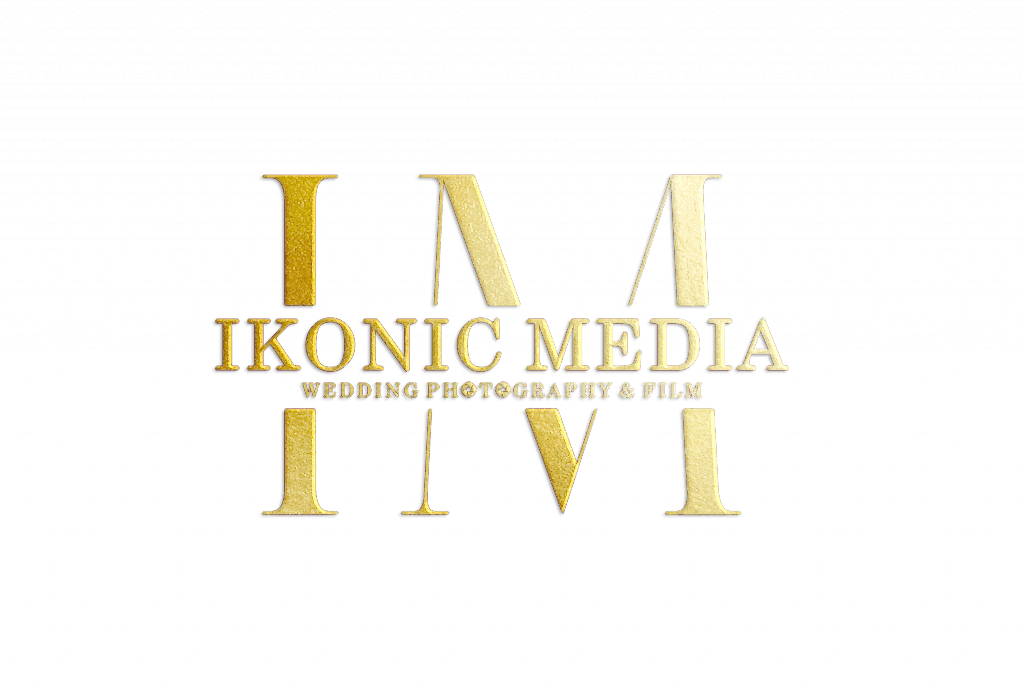Wedding Planning

Planning a wedding is one of the most exciting yet overwhelming experiences in a person’s life. It’s a celebration of love, commitment, and a new beginning, and making it perfect requires attention to countless details. Whether you’re going the DIY route or hiring a wedding planner, starting early and staying organised is the secret sauce to a seamless and memorable wedding planning experience.
Understanding the Importance of Wedding Planning
Wedding planning isn’t just about picking colors or choosing a cake—it’s about creating a meaningful, smooth-flowing experience that reflects the couple’s personality. Without a well-structured plan, it’s easy to overspend, miss important deadlines, or even forget key details like vendor contracts or guest seating arrangements.
At its core, wedding planning allows you to outline your priorities, manage your time effectively, and communicate clearly with everyone involved. A well-planned wedding ensures that everything from the first look to the final dance is filled with joy, not chaos.
Setting the Wedding Budget Wisely
Before booking venues or tasting cakes, your first priority should be setting a realistic wedding budget. This step is the bedrock of all your wedding planning decisions. Whether you’re working with £5,000 or £40,000, a well-thought-out budget ensures you don’t end up with post-wedding financial stress.
Wedding planning is crucial because it allows couples to create a tailored experience that reflects their love story. An organised approach to wedding planning can save time, reduce stress, and enhance the overall enjoyment of the process.
As you embark on your wedding planning journey, consider creating a timeline that covers all elements of wedding planning from the engagement to the honeymoon. This ensures that no detail is overlooked.
In the early stages of wedding planning, discussions about the ideal wedding planning budget are essential. This budget will guide every decision and help maintain focus throughout the wedding planning process.
Start by identifying your total budget and then divide it by category—venue, catering, attire, photography, décor, and so on. Tools like Excel sheets or budgeting apps can help you track expenses. Pro tip: Always allocate 10-15% for unexpected costs. Believe us, they will show up.
Don’t be afraid to prioritize. Maybe you’re set on an exotic venue but less fussy about a designer dress—allocate funds accordingly. Discuss finances openly with everyone contributing (yes, awkward, but necessary). It’s all part of building a solid planning foundation.
Choosing the right wedding date is a key aspect of wedding planning, as it impacts venue availability and guest attendance. Carefully considering the timing is an essential part of successful wedding planning.
Choosing the Right Wedding Date
Timing is everything—especially when it comes to weddings. The date you choose impacts your venue availability, guest attendance, budget, and even vendor pricing. For instance, Saturday evenings in June are prime (and pricey!), while weekday weddings or off-season months like January or November can be more affordable and available.
Also, consider personal dates that carry meaning—anniversaries, first date, proposal day—or practical aspects like work schedules or travel considerations. Weather plays a big role too; beach weddings are dreamy but not during hurricane season. Research and flexibility go a long way in nailing the perfect wedding day.
Creating a Wedding Vision Board
You may not know the exact shade of blush you want, but you probably have an idea of the vibe. A wedding vision board helps capture that aesthetic—whether it’s whimsical boho, classic elegance, or bold modern. Wedding planning includes visual references for dresses, florals, table setups, lighting, signage, and colour palettes. This board is especially useful when communicating your vision with vendors—think of it as your wedding planning mood translator.
Include visual references for dresses, florals, table setups, lighting, signage, and color palettes. This board is especially useful when communicating your vision with vendors—think of it as your wedding mood translator.
Pro tip: Don’t go overboard with too many ideas. Streamline the vision so it feels cohesive. And yes, both partners should have input—it’s your day, not just a one-person show.
Hiring a wedding planner can simplify the complex aspects of wedding planning. They can save you time and stress, allowing you to focus on enjoying the process.
Hiring a Wedding Planner vs DIY Planning
To hire or not to hire? That’s the question. A wedding planner can be a godsend—especially if you have a hectic schedule or are planning a destination wedding. They bring expertise, vendor contacts, and a cool head in the face of stress.
However, DIY wedding planning is totally doable—especially if you’re organized, resourceful, and supported by a team of friends or family. Many couples even opt for a hybrid model: hiring a day-of coordinator to handle logistics while they DIY the rest.
Evaluate your budget, timeline, and stress threshold. If you’re dreaming big and aiming for stress-free execution, hiring a planner could be your best investment.
When selecting the perfect wedding venue, consider how it aligns with your overall wedding planning vision. The venue sets the tone for your celebration.
Choosing the Perfect Wedding Venue
Your venue sets the tone for the entire celebration. Are you picturing a rustic barn, a modern loft, a beachside ceremony, or a grand ballroom? Each choice comes with its pros and cons—and costs.
Visit venues in person to get a feel for the space, lighting, and layout. Ask about amenities, curfews, parking, and what’s included in the rental fee (tables, chairs, linens, etc.). Venues book up fast—especially popular ones—so this is a decision to make early in the planning process.
Building the guest list is a vital part of wedding planning, and it’s essential to balance personal choices with budget constraints and venue capacity.
Also, consider logistics: is it accessible for guests? Is there accommodation nearby? Can it accommodate your guest list comfortably? Choose a space that fits your vision and your practical needs.

Building the Guest List Strategically
Sending out save-the-dates is an exciting step in the wedding planning timeline, ensuring guests are informed and can reserve the date for your celebration.
Ah, the guest list—one of the trickiest parts of wedding planning. It’s not just about who you want there; it’s also about who fits the budget, venue capacity, and family dynamics. Begin by listing “must-haves” (immediate family, close friends) and work your way out.
Use a spreadsheet to track RSVPs, addresses, meal preferences, and gifts. Be clear about whether kids are invited, if plus-ones are allowed, and when RSVPs are due. And yes, it’s okay to have an “A” list and a “B” list—just be strategic with the timing of invites.
Remember, it’s your wedding. Don’t feel pressured to invite that cousin you haven’t seen since middle school just because your aunt insists.
Sending Out Save-the-Dates and Invitations
Save-the-dates are your guests’ heads-up that a celebration is coming. Send them 6–8 months in advance (or even earlier for destination weddings). These don’t need to include all the details—just date and location.
Formal invitations should go out around 8–10 weeks before the big day. Include RSVP cards, meal choices (if needed), and a link to your wedding website. Double-check addresses and postage before mailing—those oversized or oddly shaped invites may need extra stamps.
As you choose your wedding attire, remember it’s essential to consider how your selections contribute to the overall wedding planning narrative. Your outfit should reflect both your personal style and the theme of your day.
Want to be more eco-friendly or budget-conscious? Digital invitations are becoming increasingly stylish and accepted.
Picking the Ideal Wedding Theme and Colors
Your wedding theme and colors act like the glue that ties everything together—from the invitations to the flowers, and even your wedding attire. This is your chance to show off your personalities and aesthetics as a couple.
Classic and elegant? Think ivory, gold, and blush tones. Want to make a statement? Go bold with jewel tones or a monochrome palette. Boho-chic more your vibe? Earthy neutrals and pampas grass galore.
When choosing your theme and palette, consider the season, venue style, and cultural elements you may want to honor. Once nailed down, your theme becomes a guiding light for all future decisions, helping you avoid design confusion or clashing elements.
When booking catering, communicate your vision clearly to align with your wedding planning goals. The menu is a critical aspect of the guest experience.
Selecting the Dream Wedding Dress and Attire
Finding the dress (or suit) can feel like a fairy tale—or a challenge. Start shopping 9–12 months in advance for dresses, as alterations can take time. Bridal salons often require appointments, and some designers have long delivery times.
Think about your venue, theme, and comfort when choosing your attire. You’ll be in it for hours—so make sure it’s something you feel confident and comfortable wearing. Don’t forget accessories, shoes, and undergarments!
And the groom? He shouldn’t be left out of the style game. Whether he’s going full tux or going casual with a linen suit, coordination with the overall wedding theme is key.
Hiring the Best Wedding Photographer and Videographer
Your wedding photos and videos are the keepsakes you’ll cherish for decades. Choose a photographer whose style resonates with you—whether that’s documentary-style, classic portraiture, or moody editorial.
Look at full wedding galleries, not just highlight reels. Meet with photographers and videographers to ensure you’re comfortable with them; after all, they’ll be following you around on your most intimate day.
During wedding planning, consider what types of entertainment will enhance the atmosphere and create memorable moments for both you and your guests.
Florals and decor play a significant role in wedding planning, as they bring your vision to life and add emotional resonance to the event.
Ask about packages, turnaround time, rights to images, and if they bring backups. This is one vendor category where cutting corners can lead to regrets—invest wisely.
Booking Catering and Wedding Cake Services
Food is one of the highlights of any wedding. Whether you’re opting for a plated dinner, buffet, or food trucks, your catering should align with your style, guest count, and dietary needs.
Schedule tastings, ask for sample menus, and discuss logistics like service staff, rentals, and timing. And the cake? It’s the sweet exclamation point of the meal. Choose a baker who can create something delicious and beautiful—naked cakes, buttercream florals, or even macaroon towers are all trending.
Don’t forget about late-night snacks—your guests will thank you after hours of dancing!
Choosing Music and Entertainment
Whether you’re hiring a live band, DJ, or creating your own playlist, music sets the emotional tone. Think about what you want for your ceremony, cocktail hour, dinner, and dancing.
Your wedding ceremony planning should reflect your unique love story, making it a personal and significant moment in your wedding planning journey.
For example, acoustic guitar for the ceremony, a jazz trio for cocktail hour, and a DJ for the reception can create a dynamic experience. Don’t forget special songs for your first dance, parent dances, and any traditions or cultural moments.
Also, consider entertainment extras: photo booths, live painters, or even fire dancers! These elements keep guests engaged and add that “wow” factor.
Florals and Decor: Bringing the Vision to Life
The reception planning and seating arrangements are crucial for a successful event, ensuring guests feel comfortable and entertained throughout the celebration.
Flowers do more than just look pretty—they evoke mood and romance. Work with your florist to select seasonal blooms that match your theme and budget. Think beyond bouquets—consider floral installations, centerpieces, arches, and boutonnieres.
Your décor choices—from table settings and lighting to signage and draping—should complement your vision board. Rentals like chargers, linens, and candle holders can elevate even the simplest space.
Your wedding registry is another aspect of wedding planning. Curate a list that reflects your lifestyle and needs as a couple.
Don’t overlook sustainability! Consider donating flowers after the wedding or using potted plants guests can take home.
Wedding Ceremony Planning Essentials
Pre-wedding events are also an essential part of the wedding planning process. They provide opportunities for family and friends to share in the excitement leading up to your big day.
The ceremony is the emotional heart of your day. Whether it’s religious, spiritual, or civil, your ceremony should reflect your relationship and beliefs. Work with your officiant (or a loved one performing the ceremony) to craft personal vows, readings, and rituals.
Consider the logistics: sound system for outdoor ceremonies, aisle setup, seating arrangement, and a backup plan for bad weather. Also, think about including a moment of silence or tribute to honor lost loved ones.
Rehearsing the ceremony ahead of time ensures everyone knows where to stand, walk, and speak—avoiding awkward hiccups when the big moment arrives.
Reception Planning and Seating Arrangements
Your reception is the celebration part—and it should flow effortlessly. Think through your timeline: grand entrance, first dance, toasts, dinner service, cake cutting, and send-off.
Seating arrangements can be a puzzle, especially if navigating family drama or accommodating different groups of friends. Use an online seating chart tool to visualize layouts. Always reserve seats for your VIPs—like grandparents and bridal party members.
Also consider accessibility: make sure older guests aren’t next to the speakers and that dietary needs are clearly communicated to catering.
Wedding Registry Tips and Must-Haves
Setting up your wedding registry is one of the more fun planning tasks. It’s basically a sanctioned wish list! Start with the basics—kitchen gadgets, linens, and home essentials—but don’t be afraid to think outside the box. Add experiences, honeymoon funds, or even charitable donations.
Creating a detailed timeline is a vital component of effective wedding planning. It helps ensure that everything runs smoothly on the day itself.
Choose 2–3 retailers (both online and brick-and-mortar) to give guests options. Use categories to guide your selections and offer gifts at various price points. Make sure your registry link is easily accessible via your wedding website or invitations.
Remember, your registry should reflect your lifestyle. Love cooking? Add high-end cookware. Prefer travel? Go for luggage or Airbnb gift cards.
Planning Pre-Wedding Events
Understanding the legal requirements is an important part of wedding planning. Ensure you have all necessary documents ready well in advance.
Your wedding is more than just one day—it’s a whole celebration! Pre-wedding events help build excitement and allow quality time with loved ones.
- Engagement Party: A chance to toast with friends and family early in the process.
- Bridal Shower: Usually hosted by close friends or family, often with gifts and games.
- Bachelor/Bachelorette Party: One last hurrah with your crew before the big day.
- Rehearsal Dinner: Held the night before the wedding to thank everyone involved.
Space these events out if possible and keep your calendar from getting overwhelming. You’ll want to be energized, not exhausted, on your wedding day!
Creating a Detailed Wedding Timeline
A well-structured timeline is the key to a stress-free day. Start from the ceremony time and work backward, accounting for hair and makeup, photos, transportation, and setup.
Also, map out the flow of the reception: when guests arrive, when dinner is served, speeches, first dances, and so on. Share this timeline with vendors, your planner (if you have one), and the bridal party. Everyone should know where to be and when.
Add buffer time to avoid last-minute rushes—trust us, things always take longer than planned.
Vendor coordination is a critical aspect of wedding planning. Clear communication with your vendor team can significantly reduce stress on the day.
Handling Legal Requirements and Documentation
Every couple dreams about flowers and vows—but don’t forget the paperwork. Legal marriage requirements vary by location, but generally, you’ll need to:
- Apply for a marriage license (often in person)
- Bring valid IDs
- Pay a small fee
- Possibly complete a waiting period before the license is valid
Be sure to research local laws, especially if planning a destination wedding. After the ceremony, your officiant (or you) must file the license for it to become a legal marriage.
Transportation and guest accommodation planning are vital to ensure your guests have a seamless experience during your wedding festivities.
Some couples also opt to change their names—look into how and when to do this based on your country’s rules.
Working with Vendors: Contracts and Coordination
Your vendors are your wedding day dream team. From florists and caterers to DJs and coordinators, clear communication is vital. Always sign a contract that outlines services, payment terms, cancellation policies, and responsibilities.
Planning your honeymoon is an exciting conclusion to your wedding planning journey, allowing you to relax and enjoy your new life together.
Set up a master contact sheet with all vendors, their arrival times, and assigned duties. If you don’t have a planner, appoint a trusted friend or relative as the point person for questions on the day-of.
Regular check-ins help ensure everyone stays aligned. Don’t be shy about asking questions or clarifying anything you don’t understand—it’s your wedding!
Managing Transportation and Guest Accommodation
Having a backup plan is essential in wedding planning to address unexpected issues that may arise on your special day.
If your ceremony and reception are in different locations—or you have lots of out-of-town guests—transportation and lodging are key considerations.
Reserve hotel blocks for guests at nearby hotels with a range of price points. Provide welcome bags with essentials and schedules.
For transportation, think shuttles, buses, or even fun options like trolleys or vintage cars. Provide clear instructions and timing to guests so no one ends up lost or late.
Final dress fittings and grooming are essential components of wedding planning that help ensure you look and feel your best on your wedding day.
Planning the Honeymoon
Assembling your wedding emergency kit is a practical step in wedding planning that prepares you for any unforeseen circumstances.
You just said “I do”—now it’s time to relax! Whether you’re jetting off to Bali or road-tripping through national parks, the honeymoon should reflect your style as a couple.
Start planning early for the best deals on flights and accommodations. Consider travel insurance, passports, vaccinations, and currency exchange if heading abroad.
Schedule downtime between the wedding and honeymoon if you need to decompress first. Some couples even do a mini-moon and save the big trip for later!
Backup Plans for Unexpected Issues
Rain? Power outage? Vendor ghosting? Having a Plan B can save your big day. If you’re planning an outdoor ceremony, arrange for tents or an indoor backup. Have extra seating, umbrellas, and a contact list of backup vendors.
Put together a plan for emergencies—like what to do if the cake doesn’t arrive or a groomsman forgets his suit. Having contingency plans in place helps everyone stay calm and keeps the day running smoothly.
Final Dress Fittings and Grooming
Your final fittings should be scheduled at least 2–3 weeks before the wedding. Bring your undergarments and shoes for accurate adjustments. Make sure the dress or suit is steamed and ready to go in advance.
Don’t forget grooming! Haircuts, facials, teeth whitening, waxing—it’s all fair game, but don’t try anything drastic last minute. Trial runs for hair and makeup are also highly recommended to avoid surprises.
The rehearsal dinner is a special moment in wedding planning that allows families to connect and set the stage for the big day.
Assembling the Wedding Emergency Kit
You hope nothing goes wrong—but it’s best to be prepared. Your wedding emergency kit should include:
Handling logistics on your wedding day is crucial. Trust your planning and enjoy the fruits of your wedding planning efforts.
- Safety pins, bobby pins, and fashion tape
- Pain relievers and allergy meds
- Sewing kit and stain remover
- Extra makeup and tissues
- Deodorant and breath mints
- Snacks and water
Assign someone to carry it or stash it in a safe but accessible location. You’ll be glad you have it!
Post-wedding tasks are a continuation of the wedding planning journey, ensuring that you wrap up everything nicely after the celebration.
Rehearsal Dinner Planning
This intimate gathering is the warm-up to your wedding day. It’s often hosted by the groom’s family, but there are no rules. Choose a location that’s easy to get to, plan a casual yet meaningful meal, and allow time for toasts and mingling.
It’s also the perfect time to hand out gifts to your bridal party and review the ceremony logistics one last time.
Handling Wedding Day Logistics
The big day is here! Assign tasks, stick to the timeline, and trust your team. Your only job? Be present and enjoy every second.
Have someone keep track of payments, vendor tips, and last-minute errands. Delegate someone to collect gifts and personal items at the end of the night.
Above all, soak it in—you’ve worked hard to plan a magical day. Now, it’s time to live it.
Post-Wedding To-Dos
After the party’s over, there’s still a bit left to do. Write thank-you cards within a month or two. Organize your photos and videos into albums. Handle name changes and legal paperwork if needed.
Review vendor services and leave reviews—it helps future couples and shows appreciation. And take a breath—you’re married now!
Tips for a Stress-Free Wedding Planning Journey
Planning a wedding is a journey—one filled with emotions, decisions, and joyful chaos. Here are a few final tips:
- Don’t compare your wedding to others.
- Take breaks and make time for date nights.
- Stay flexible—something will go off-plan.
- Accept help when offered.
- Focus on what truly matters: celebrating your love.
FAQs About Wedding Planning
What is the first step in wedding planning?
Start by setting a budget. It will guide every decision and help you allocate resources efficiently.
When should I start planning my wedding?
Ideally, 12–18 months in advance, but smaller weddings can be planned in 6–9 months.
Should I hire a wedding planner?
If your budget allows or if you’re planning a large or destination wedding, a planner can reduce stress and streamline logistics.
What’s the average cost of a wedding?
It varies widely by location and guest count, but in the U.S., the average is around $28,000.
How can I reduce wedding costs?
Trim the guest list, choose off-peak dates, DIY elements, and opt for seasonal flowers.
What should I include in my wedding day emergency kit?
Think safety pins, pain relievers, stain remover, snacks, tissues, and extra makeup.
Conclusion
Wedding planning may seem overwhelming, but with the right approach, it becomes a rewarding and joyful process. Stay focused on your priorities, trust your team, and don’t forget to enjoy the wedding planning journey. You’re not just planning an event—you’re crafting memories that will last a lifetime. 💞




